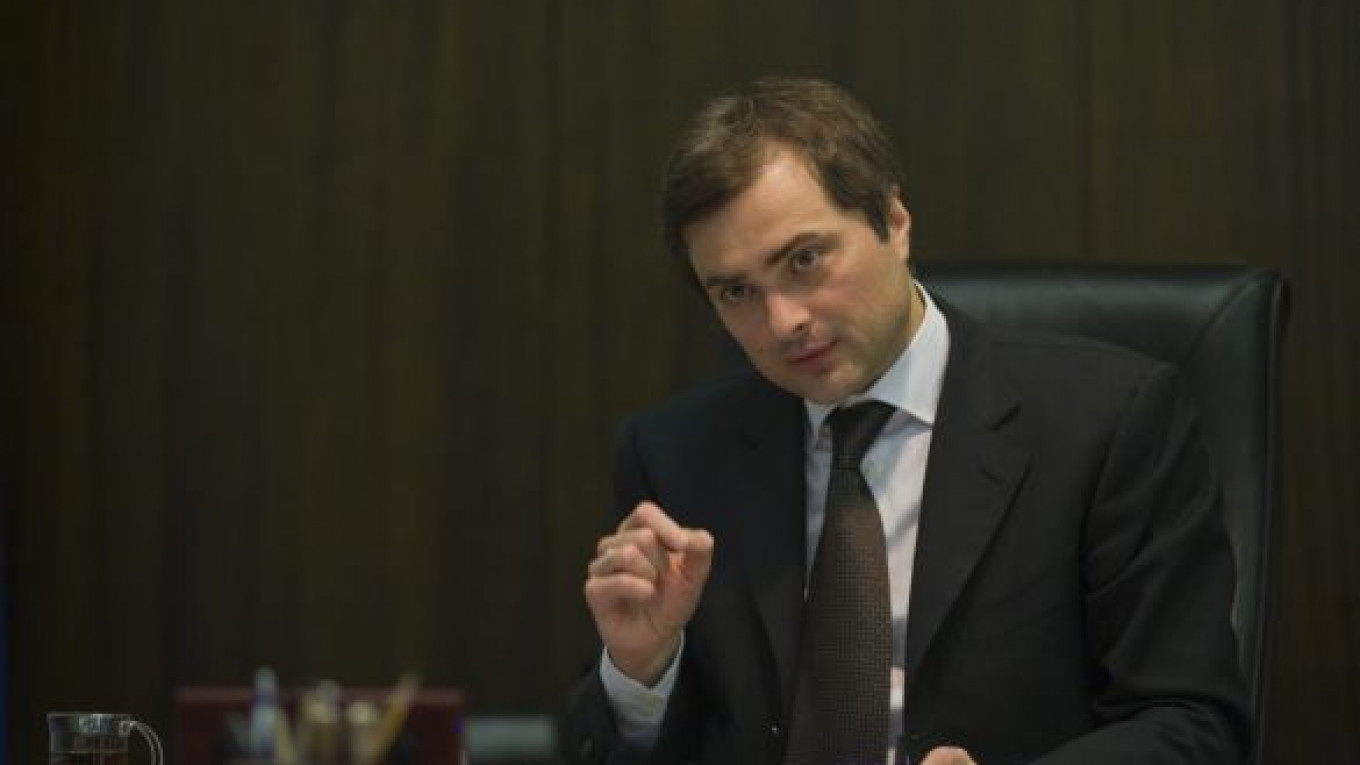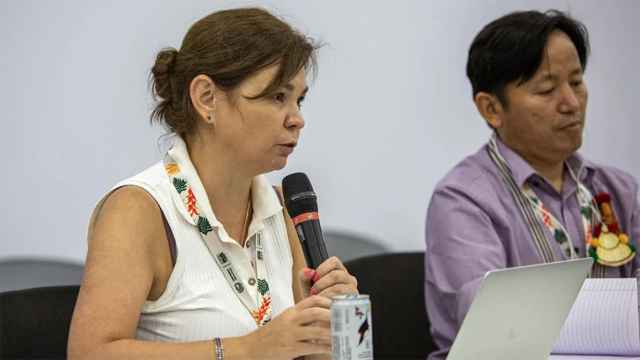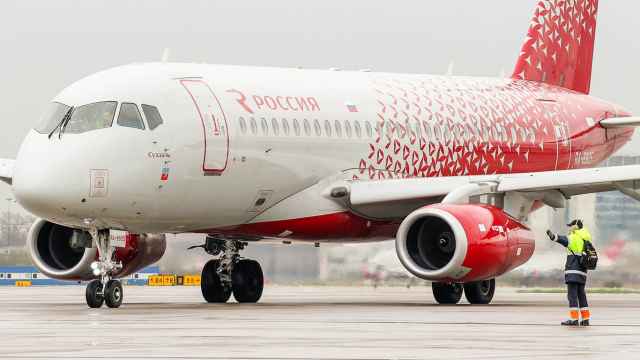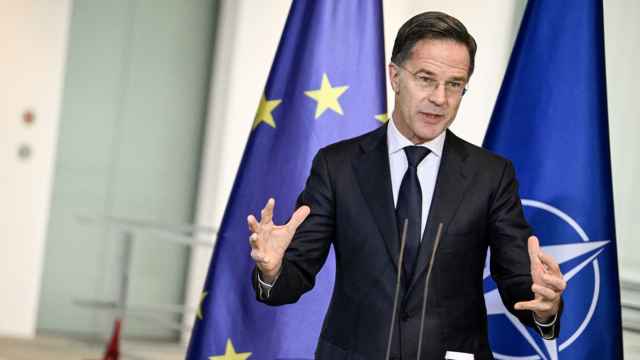Vladislav Surkov, a deputy prime minister and a former Kremlin political power broker, has been appointed to oversee religious organizations, a move seen as aimed at improving the tarnished image of the Russian Orthodox Church.
Prime Minister Dmitry Medvedev signed the order for Surkov’s new appointment Friday, but it became known only on Monday, RIA-Novosti reported, citing a government statement.
Observers said that the appointment of the former Kremlin spin doctor to oversee religious issues in the government is a tool to help enhance the image of the Orthodox Church, which, despite remaining one of society’s strongest institutions, has suffered heavily over its denouncements of punk band Pussy Riot.
Three of that group’s members are facing hooliganism charges for performing a song opposing President Vladimir Putin in Christ the Savior Cathedral in February.
“The church has image problems, and Surkov has been called as a person who understands what public politics mean. He is going to renew the church’s image in the public sphere,” said Olga Mefodyeva, an analyst with the Center for Political Technologies.
Orthodox Church head Patriarch Kirill has also come under attack from liberal media outlets, especially after a doctored photo of him was spotted on the church’s website in which an expensive Breguet watch he was wearing had been erased.
Church spokesman Vsevolod Chaplin welcomed Surkov’s appointment Monday.
In an interview with Interfax, he called him a “high-quality intellectual” who is “interesting and pleasant to work with.”
Chaplin’s words were echoed by Chechen republic mufti Sultan Mirzayev, who praised Surkov as a “wise politician,” Interfax reported.
Surkov previously oversaw church affairs, among other responsibilities, while working as a deputy head of the Kremlin administration under then-President Dmitry Medvedev.
He is expected to assume the post on the commission on religious affairs and public organizations that he used to chair while in the presidential administration, Vedomosti reported Monday.
The deputy prime minister’s own religious beliefs are not known.
But in 2011, he said that his former boss Putin was “sent to Russia by fate and God during a difficult time.”
Surkov, who coined the term “sovereign democracy” to describe Putin’s rule in his first two terms as president, has called for changes in the political system and dialogue with the “creative class” following large-scale anti-Kremlin demonstrations in Moscow in December.
Shortly after a major opposition protest on Bolotnaya Ploshchad that month, Surkov was removed from his position in the Kremlin, a move that reform-minded former Finance Minister Alexei Kudrin described as the beginning of political change in the country.
Surkov’s duties as deputy prime minister include overseeing youth affairs, the construction of the Skolkovo innovation park, and cultural issues.
“He is clever and versatile, multi-faceted, talented and cynical, principled and unprincipled simultaneously,” a longtime acquaintance of Surkov said of him, speaking on condition of anonymity so as not to damage relations with the deputy prime minister.
Unlike in his previous Kremlin position, Surkov keeps a low profile in his current job and avoids involvement in politics.
He is also reportedly set to release a second book of political fiction under the pen name Natan Dubovitsky.
The previous book by Dubovitsky, “Close to Zero,” which contained a preface written by Surkov and was allegedly authored by him, was a satire of both officials and the opposition.
Surkov has never admitted to writing under Dubovitsky’s name.
A Message from The Moscow Times:
Dear readers,
We are facing unprecedented challenges. Russia's Prosecutor General's Office has designated The Moscow Times as an "undesirable" organization, criminalizing our work and putting our staff at risk of prosecution. This follows our earlier unjust labeling as a "foreign agent."
These actions are direct attempts to silence independent journalism in Russia. The authorities claim our work "discredits the decisions of the Russian leadership." We see things differently: we strive to provide accurate, unbiased reporting on Russia.
We, the journalists of The Moscow Times, refuse to be silenced. But to continue our work, we need your help.
Your support, no matter how small, makes a world of difference. If you can, please support us monthly starting from just $2. It's quick to set up, and every contribution makes a significant impact.
By supporting The Moscow Times, you're defending open, independent journalism in the face of repression. Thank you for standing with us.
Remind me later.






